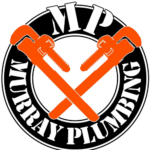About the Author:
Hi there! I’m Chris Murray, a seasoned plumbing professional serving the community of Middletown, PA. With years of hands-on experience, I’ve encountered various plumbing issues and understand the importance of water pressure regulation in maintaining a healthy plumbing system. In this blog post, I’ll delve into the significance of water pressure regulators and provide practical advice for homeowners to ensure proper flow in their Middletown residences.
Water pressure regulators play a crucial role in maintaining the integrity and functionality of residential plumbing systems. As a plumbing professional in Middletown, PA, I’ve witnessed firsthand the impact that water pressure can have on pipes, fixtures, and appliances. In this comprehensive guide, I’ll explore the importance of water pressure regulation and share valuable insights on how homeowners can protect their properties from plumbing emergencies by investing in and maintaining water pressure regulators. Find more information
Understanding the Importance of Water Pressure Regulation
Water pressure regulation is essential for ensuring the safe and efficient operation of residential plumbing systems. In Middletown, PA, where homes rely on municipal water supplies, fluctuations in water pressure can occur due to various factors such as changes in demand, aging infrastructure, and environmental conditions. Without adequate regulation, high water pressure can lead to a host of problems, including burst pipes, leaks, and damaged fixtures. By installing water pressure regulators, homeowners can maintain consistent water flow throughout their properties while protecting their plumbing infrastructure from potential damage.
Key Benefits of Water Pressure Regulation
1. Preventing High Water Pressure Damage
High water pressure can exert excessive force on pipes, causing them to weaken and eventually fail. Additionally, high water pressure increases the risk of leaks and bursts, resulting in water damage and costly repairs. By installing a water pressure regulator, homeowners can mitigate these risks by ensuring that water pressure remains within safe limits, thereby extending the lifespan of their plumbing system and reducing the likelihood of emergencies.
2. Ensuring Consistent Water Flow
Inconsistent water pressure can be frustrating for homeowners, leading to weak water flow at faucets, showers, and appliances. By regulating water pressure, homeowners can enjoy a steady and reliable flow of water throughout their homes, enhancing comfort and convenience. Whether washing dishes, taking a shower, or doing laundry, consistent water flow is essential for completing daily tasks efficiently and effectively.
3. Protecting Appliances and Fixtures
High water pressure can damage appliances such as dishwashers, washing machines, and water heaters, leading to premature failure and costly repairs. Additionally, high water pressure can cause fixtures such as faucets, showerheads, and toilets to leak or malfunction. By installing a water pressure regulator, homeowners can protect their appliances and fixtures from the damaging effects of high water pressure, thereby extending their lifespan and reducing maintenance costs.
Tips for Maintaining Water Pressure Regulators
1. Regular Inspection
To ensure the proper functioning of a water pressure regulator, homeowners should perform regular inspections to check for any signs of damage or wear. This includes checking for leaks, drips, or unusual noises, as well as visually inspecting the regulator for corrosion or deterioration. If any issues are detected, homeowners should promptly address them to prevent further damage and maintain optimal water pressure regulation.
2. Adjusting Pressure Settings
If homeowners experience fluctuations in water pressure or suspect that their regulator is not functioning correctly, they may need to adjust the pressure settings. This can typically be done using a screwdriver or wrench to adjust the regulator’s spring tension or pressure setting. However, homeowners should consult the manufacturer’s instructions or seek professional assistance if they are unsure how to adjust the pressure settings safely.
3. Flushing and Cleaning
Periodically flushing and cleaning the water pressure regulator can help remove sediment, debris, or mineral buildup that may accumulate over time and affect its performance. Homeowners should follow the manufacturer’s recommendations for maintenance and use caution when disassembling and reassembling the regulator to avoid damaging any components.
4. Professional Maintenance
In addition to DIY maintenance, homeowners should schedule periodic maintenance and inspection of their water pressure regulator by a qualified plumber. A professional plumber can perform a thorough assessment of the regulator and make any necessary adjustments or repairs to ensure that it continues to function optimally. By investing in professional maintenance, homeowners can prolong the lifespan of their water pressure regulator and avoid costly repairs or replacements down the line. Don’t miss out
Conclusion
In conclusion, water pressure regulators are essential components of residential plumbing systems, particularly in areas like Middletown, PA, where consistent water flow is crucial for everyday activities. By regulating water pressure, homeowners can prevent high pressure damage, ensure consistent water flow, and protect their appliances and fixtures from premature failure. By following the tips provided in this guide and investing in professional maintenance when needed, homeowners can enjoy peace of mind knowing that their plumbing system is well-equipped to handle the demands of modern living.



